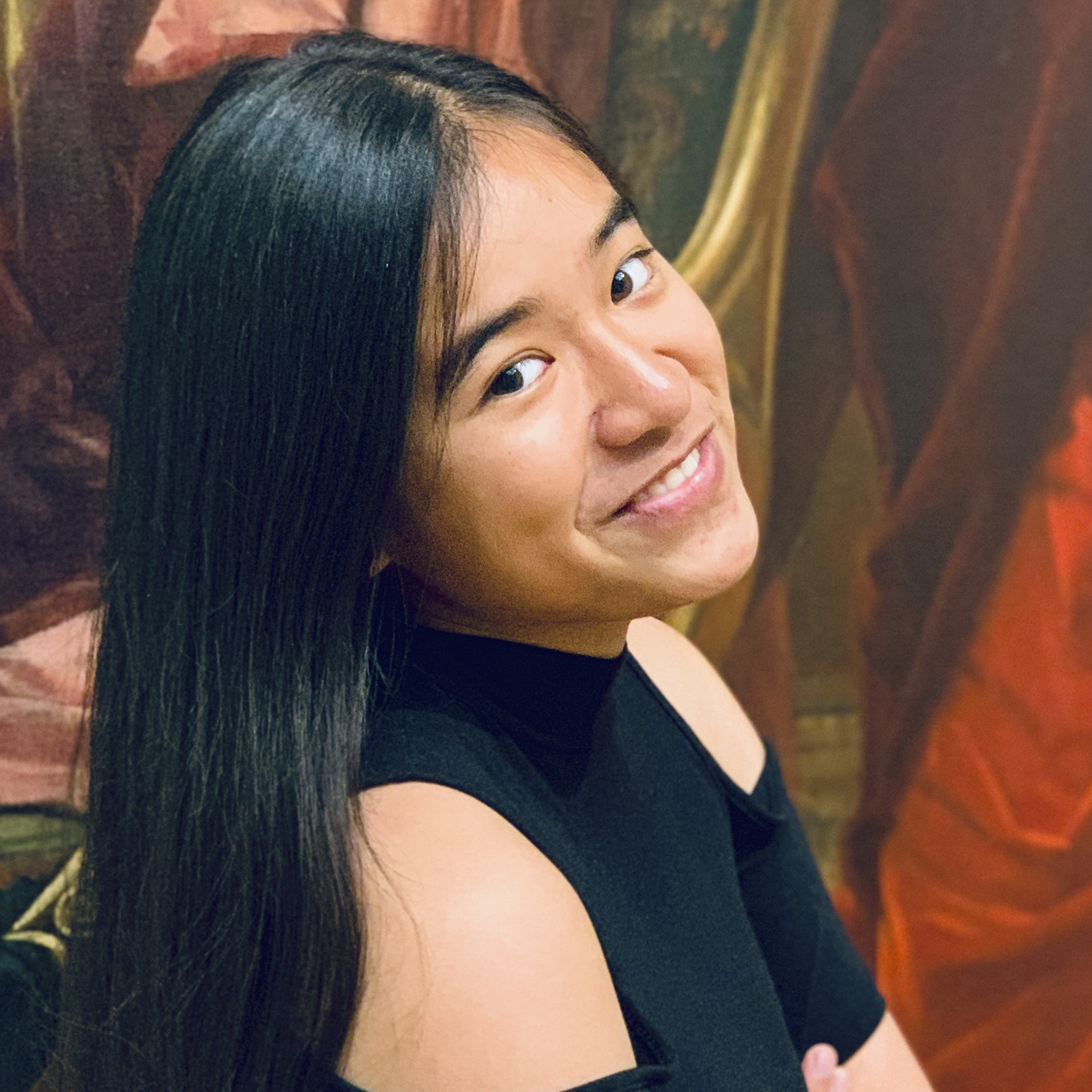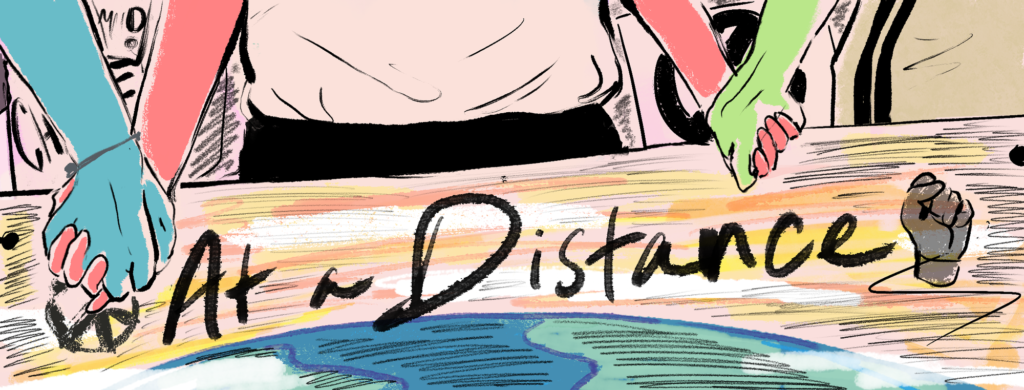At a Distance: Students and faculty express hope, concerns amid protests for change in Colombia

(Katelyn Dang/Daily Bruin)

By Loan-Anh Pham
May 25, 2021 4:01 p.m.

Bruins come from all around the world, from Colombia to Bangladesh. Because of the pandemic, many international Bruins are currently residing in their home countries. In “At a Distance,” Daily Bruin writers will look at events around the world Bruins care about and give a student’s perspective on the topics.
UCLA faculty and students expressed hope and concern as clashes between protesters and police continue nearly a month after protests erupted in Colombia.
Protests in Colombia first ignited April 28, after President Ivan Duque proposed reforms that would increase taxes on the lower and middle class in an attempt to address the country’s fiscal deficits.
Despite the withdrawal of Duque’s tax plan May 2, protesters are demanding major changes, including universal basic income, free college tuition and protection from attacks on Indigenous communities and lands.
Juliana Abello, a second-year public affairs and anthropology student who grew up in Bogota, Colombia, said the Colombian government has failed to provide for its people and the governmental response to the protests has been upsetting.
“People are just asking to be heard, to be listened to, to be treated as human beings,” Abello said. “I’m so proud of them but it also breaks my heart because I think it’s reasonable what we’re fighting for.”
A variety of groups are protesting, allowing for cross-community solidarity, said Amy Ritterbusch, a social welfare assistant professor. Young people are on the frontlines of these protests, she added.
“Indigenous leaders, Afro-Colombian social leaders, LGBTQ social leaders; … multiple social movements across lines of difference representing historically marginalized communities in Colombia are taking to the streets and protesting against the regime,” she said.
Some Colombian university departments and schools have shut down in solidarity with the protests while protesters themselves are leading roadblocks between Colombian cities, Ritterbusch added.
“There’s no mobility between cities because protesters are holding strong on the front lines, blocking roads and nearly stopping the economy in order to get a response from the government,” Ritterbusch said.
Abello said she worries for her friends in Colombia who are protesting as injuries and deaths have been sustained by both police and protesters.
Temblores, a human rights organization that tracks instances of police violence, reported more than 2,900 alleged cases of police brutality in Colombia during the protest period from April 28 through May 21. According to Temblores, those cases include 43 deaths and 855 cases of alleged physical assault by police. Police have also allegedly been responsible for 21 cases of sexual violence throughout the protests.
The United States has a noticeable influence in Colombia, especially in terms of military and police funding, said bioinformatics doctoral student Juan De la Hoz. While diplomacy between the two countries is necessary, the U.S. needs to recognize its impact on the country, added De la Hoz, who currently resides in Colombia.
In the fiscal year 2020, Colombia requested $344.4 million from the U.S. and was appropriated $460.18 million, according to a U.S. government site that publicizes U.S. foreign assistance data.
Of the $460.18 million appropriated, a little less than two-thirds, or around $300 million, was allocated toward “peace and security,” according to the site.
Amnesty International, a human rights organization, called on President Joe Biden’s administration to stop the sale and transfer of weapons to Colombia on Thursday. According to the organization, the U.S. government is responsible for transferring a wide array of weapons to Colombian law enforcement, including shotguns and tear gas.
“The U.S., I think, has a lot of leverage on the current government to continue with their policies,” De la Hoz said. “It would also have a big leverage if the U.S. decided to go the opposite way, so if the U.S. was actually trying to bring up the instances of police brutality, hold those people accountable or review their spending in (the) military in Colombia.”
Support for the protests remains divided among Colombians as the blockades lead to food and gas shortages, said Francesca McAllister, a first-year psychology student. McAllister grew up in Bogota, Colombia.
“People that need their jobs can’t get to their jobs,” McAllister said. “It’s just a bunch of stuff that affects the daily lives of everyone.”
There is also concern on how the protests, which draw thousands of protesters, will impact Colombia’s COVID-19 infection rates, McAllister said.
More than 3.23 million confirmed COVID-19 cases have been reported in Colombia since the start of the pandemic, according to the World Health Organization. The rate of COVID-19 infections is on the rise again after stagnating in March.
Colombians are anxious and concerned about the future as protests and abuses of power by law enforcement continue, Ritterbusch said. She hopes community-based organizing and collaboration continue beyond the protests.
“This is definitely a moment that marks social movement history in Colombia,” Ritterbusch said. “What I would like to see out of these protests is a move toward abolitionist horizons in Colombia, for social movements to actually take up the work of abolition and imagining society without police.”


